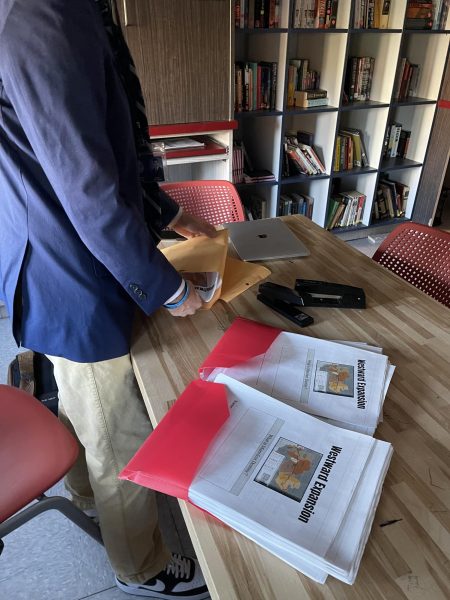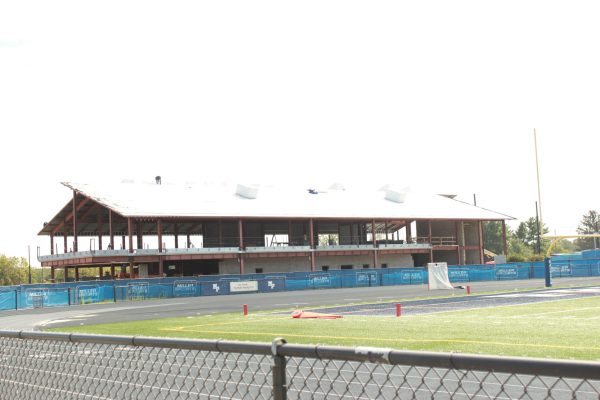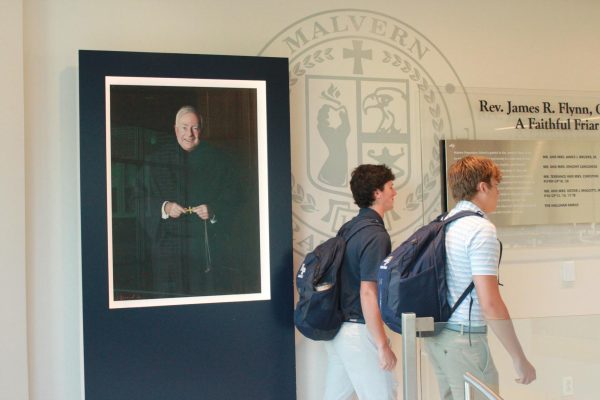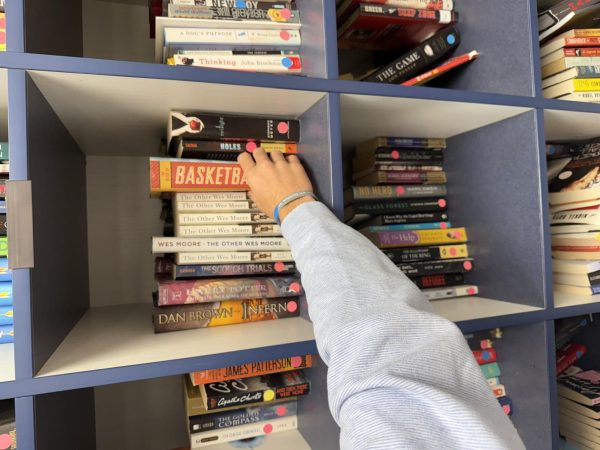As Malvern enters the second half of 2020-’21, a look back at the first semester
How the school has minimized transmission on campus while continuing to run in-person classes.
As Malvern’s leadership team and Caritas Committee neared the beginning of the 2020-’21 school year, they entered looking to simply provide students with a safe and healthy campus for learning during a pandemic. Five months later, they feel thus far, their plan has been a success.
Assistant Head of School for Academics, Mr. Patrick Sillup, found his accomplishment in keeping students safe on campus.
“The primary goal was to be here on campus in a safe and supportive way for both students and faculty,” he said. “I think we met that based on the number of days we were able to be on campus, the anecdotal evidence around how people felt about being on campus day to day with each other, whether it was peer to peer or student to faculty member.”
Even with the struggles of a pandemic, Sillup believes that Malvern has provided a meaningful learning experience for all involved.
“I think that there was a gift in being here and being together, despite how different it felt to be here,” he said. “I didn’t have one interaction with a student, and this is unique, that wasn’t extremely positive in the first semester.”
Sillup also found himself impressed by the efforts of Malvern’s faculty and staff as they navigated teaching under abnormal circumstances.
“I thought another positive for us was seeing the creativity of many of our faculty members for how to connect with students and how to bring learning to life in such a difficult time,” he said. “Just all these wrinkles people were putting into place to ensure that learning was still such a unique and mission consistent experience here was really humbling.”
Assistant Head of School for Student Leadership, Mr. Ron Algeo, also has high praise for Malvern’s teachers, giving them credit for recreating as much of a “norm” as possible in the first half of the year.
“Our Faculty is outstanding. The work they did last Spring was monumental, but what they’ve been able to design and execute this Fall was a whole other level,” he said. “Our students are thriving because of the care, creativity, and passion for learning our Faculty has put on display on a daily basis.”
Algeo also believes that Malvern students deserve credit for being able to keep the school open through maintaining guidelines.
“Our Students have been incredible. I had people (outside of the MP Community) over the summer tell me that we would never be able to open up school for in person learning,” he said. “Well, the students here did not let me down. They have been just incredible. They care about each other and they like being together.”
Algeo also led the effort by the Caritas Committee to bring new “Brotherhood Days” to Malvern, an idea to help give students more time on campus outside of classes. As Malvern looks to change how Wednesdays look in the second semester, Algeo has high hopes for Brotherhood Days that he believes haven’t been fully realized.
“I have incredibly high hopes for what Brotherhood Days can be. I don’t know exactly what that looks like yet, but the potential for these experiences is over the moon,” he said. “We need to work through the “newness” of them and see the potential in them. I believe that is beginning to happen.”
Certified School Nurse Mrs. Elizabeth Malone, like Algeo, has found students have followed COVID-19 protocols to continue to keep the school open.
“Students and the faculty and staff have been very adaptable and understanding and flexible, which is really helpful as I think everybody understands that the common goal is first of all to stay in school, and our common goal is the health of our Malvern community,” she said.
When students do test positive for the Coronavirus, Malone says the process is usually smooth in making sure that the students can return to school when possible.
“Everybody has been very open and honest about their circumstances and their symptoms and their contacts that I have seen, which I appreciate that. And because the more open and honest they’ve been, the more thorough of a job I can do, I can contact trace thoroughly when given all the information,” she said.
As Malvern looks towards the second semester, Malone believes that very little will change in how students will act on campus, and is optimistic for the duration of the 202-’21 school year.
“I expect it to be much more smooth sailing because now everybody knows what to expect. We’re going to keep doing exactly what we’re doing, so I feel like the hardest part is over,” she said.
As with other members of the Caritas Committee, Head of School Fr. Donald Reilly O.S.A. found victory in the first semester in minimizing on campus contractions of COVID-19.
“We had no contractions on campus. There were members of the community who contracted the virus but those contractions happened off campus. This fact was an indicator that the protocols, policies and procedures and the cooperation of the school community were working,” he said.
Reilly found himself making decisions throughout the semester, often trying to find a balance between assuring attendance for students and safety for all on campus.
“I think the success we experienced was that adherence to the protocols kept the community safe and COVID free,” he said. “I think the challenge, at that time, was how to balance what seemed like conflicting advice from professionals as to what were the safest and best options for programs in schools.”
Reilly also kept in contact with other schools in the region, as Malvern and its counterparts looked for answers in a confused year.
“The Inter-Ac and Club 14 are two cohort groups of fellow Heads of Schools in the Greater Philadelphia Area who meet regularly since the pandemic became our reality to share information, offer advice to one another, compare successes and failures… I found the camaraderie and cooperation among the Heads of Schools in the area very helpful,” he said.
As Malvern continues through to the second semester and creeps to the end of the year, Reilly continues to rely on the Caritas Committee to set the tone for students and faculty.
“A huge debt of gratitude goes to the Caritas Committee who still meet weekly to continue to monitor, adjust, and evaluate our procedures and policies,” he said. “Without this committee’s dedication and investment in our community’s wellness and high functionality, we would be in a very different place at this time.”





